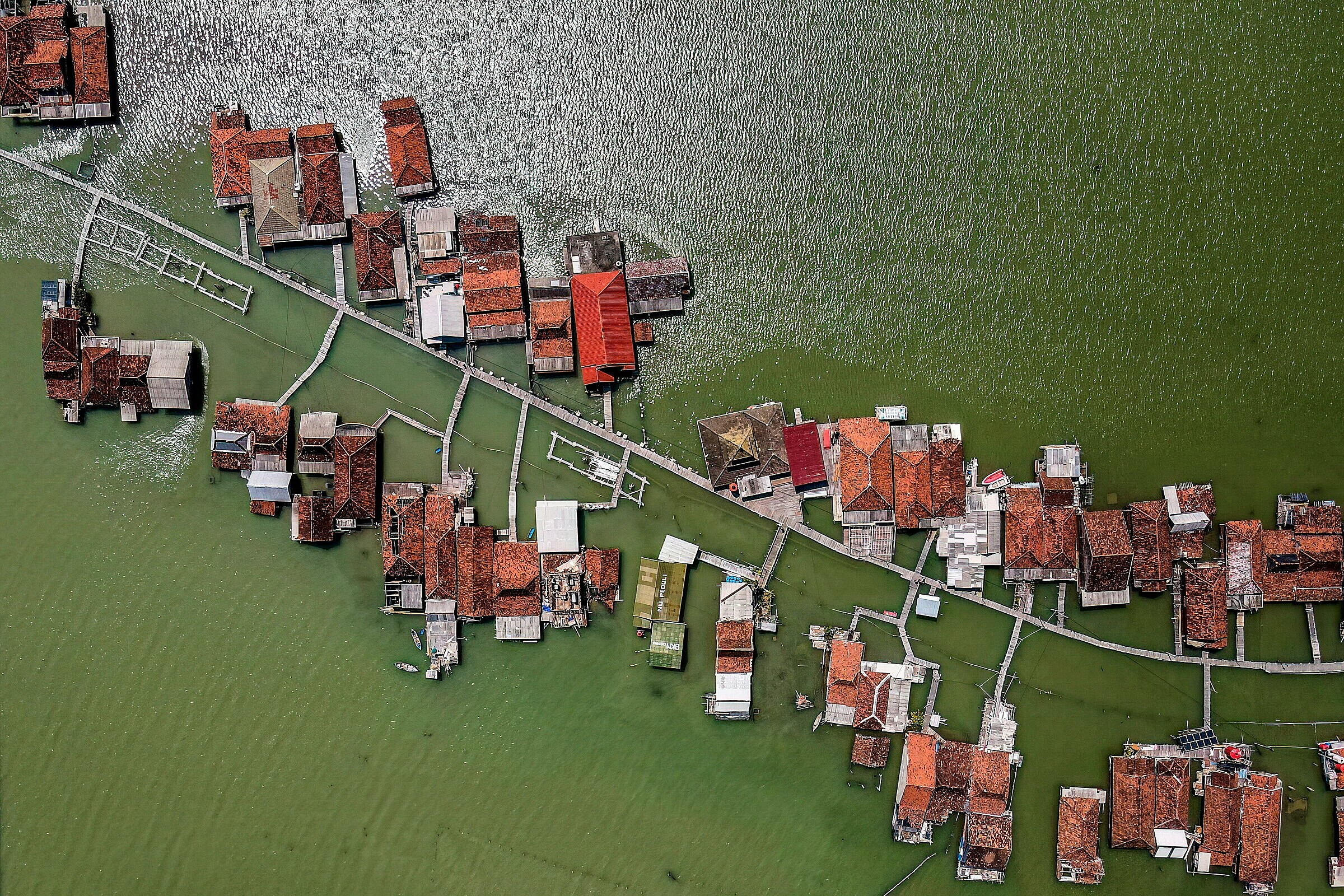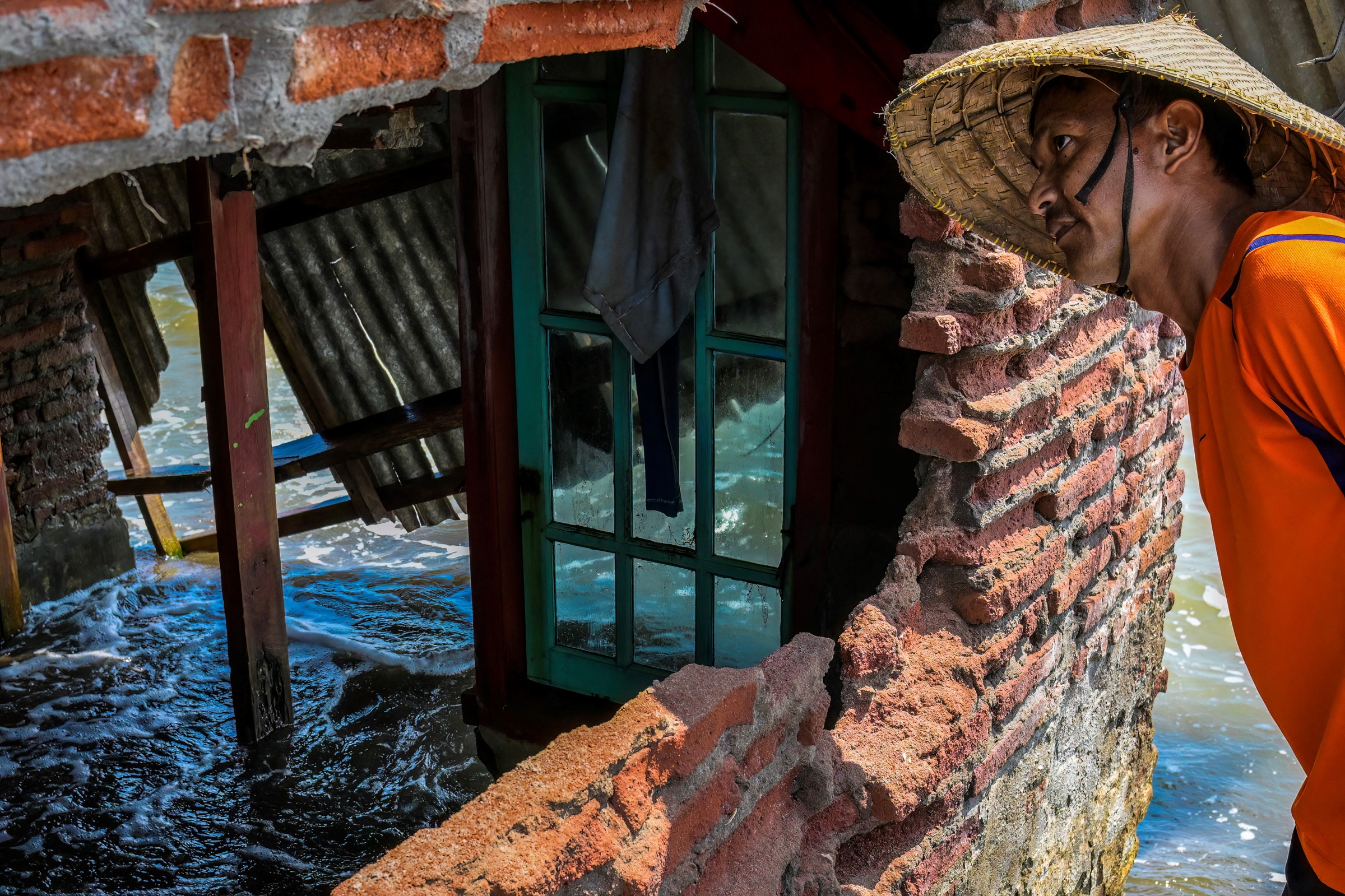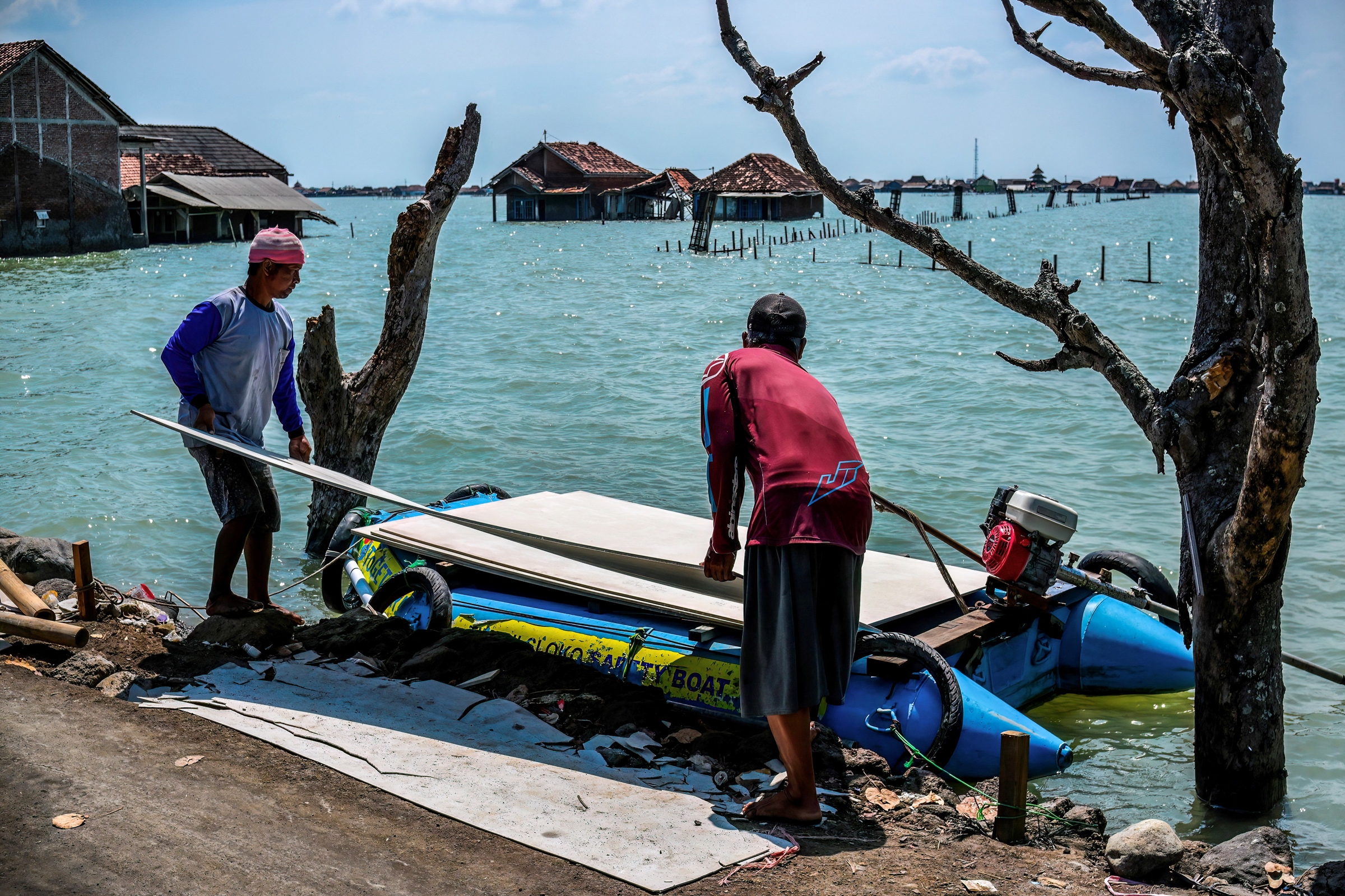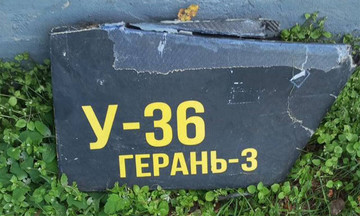Rising seas are battering the road in Bedono village, threatening Karminah’s home on Indonesia's Java island, where the government is planning a 700km sea wall.
Erosion along Java’s coast is worsening due to climate change and groundwater extraction. For residents who have seen the tide creep more than 1km inland in some areas, the sea wall project offers hope.
 |
Flooded houses in Timbulsloko village in Demak, Central Java, on 30/7. Photo: AFP |
Flooded houses in Timbulsloko village in Demak, Central Java, on 30/7. Photo: AFP
However, with construction expected to take decades and funding uncertain, the plan may not offer timely relief. Climate experts warn a sea wall could worsen erosion elsewhere and disrupt ecosystems.
For 50-year-old Karminah, these concerns seem distant.
"The important thing is that it doesn't flood here anymore, so life is easier," she said, referring to a nearly vanished coastal road. "Children can't go to school, can't play, they can only sit on the pavement staring at the water."
The Indonesian government calls the sea wall a crucial initiative to help coastal communities in Java. The island is home to over half of Indonesia's 280 million people, as well as the rapidly sinking capital, Jakarta.
Bedono residents like village head Muhammad Syarif, who have resorted to raising their homes with clay, see the sea wall as essential to prevent further tidal damage.
President Prabowo Subianto is seeking investment from Asia and the Middle East. This week, he inaugurated a project oversight body.
"I don't know which president will finish it, but we will start," Prabowo said in June.
Sea walls and coastal defenses are used worldwide to manage tides, absorbing and deflecting wave energy to protect infrastructure and residents.
 |
Crab farmer Rasjoyo looks at his abandoned home in Semonet village, Central Java, on 29/7. Photo: AFP |
Crab farmer Rasjoyo looks at his abandoned home in Semonet village, Central Java, on 29/7. Photo: AFP
Indonesia's need is urgent, with 1 to 20cm of land disappearing annually along Java's north coast. According to Climate Central, at current rates, vast areas could vanish by 2100.
However, such structures can have negative consequences, including beach destruction, offshore erosion, and disruption to ecosystems and fishing communities.
In places like Puerto Rico and New Caledonia, sea walls have collapsed due to wave action eroding the sand beneath.
"They come with significant environmental and social costs," said Melanie Bishop, a professor of coastal ecology at Macquarie University in Australia. "Sea walls lead to habitat loss and impede movement between land and sea for both animals and people."
A 2022 United Nations report warned that sea walls are a temporary fix and may exacerbate climate change impacts.
For Indonesian crab farmer Rasjoyo, coastal erosion is not theoretical. He and hundreds of others once lived in Semonet village, now abandoned to the sea and a 20-minute boat ride from the mainland.
"The flooding got worse and worse. Houses were submerged," the 38-year-old said.
He said the sea wall project, proposed in 1995, is too late.
"If it is built, when will it reach us? What year?" he asked. "The sea wall might not even be effective, because the land has already subsided."
Some climate experts suggest nature-based solutions, such as mangroves and coral reefs, are more effective alternatives.
"Unlike sea walls that need upgrading as sea levels rise, trees will grow taller," Bishop said.
 |
Bedono villagers in Demak, Central Java, transport building materials to flooded homes on 30/7. Photo: AFP |
Bedono villagers in Demak, Central Java, transport building materials to flooded homes on 30/7. Photo: AFP
Heri Andreas, a land subsidence expert at the Bandung Institute of Technology, proposes combining relocation with segmented sea walls.
"A win-win solution is to build the sea wall partially or in segments," he said, describing the current plan as "using a sledgehammer to crack a nut."
"It would be more effective to relocate people and then build sea walls in some areas, or simply upgrade coastal infrastructure," he explained.
In Bedono, where a cemetery was recently relocated due to erosion, residents simply want a quick solution.
"The solution is to build something, I don't know, just build a road, a wall, or a coastal embankment so this doesn't keep happening," Karminah said, sighing. "What can we do?"
Hong Hanh (AFP)












